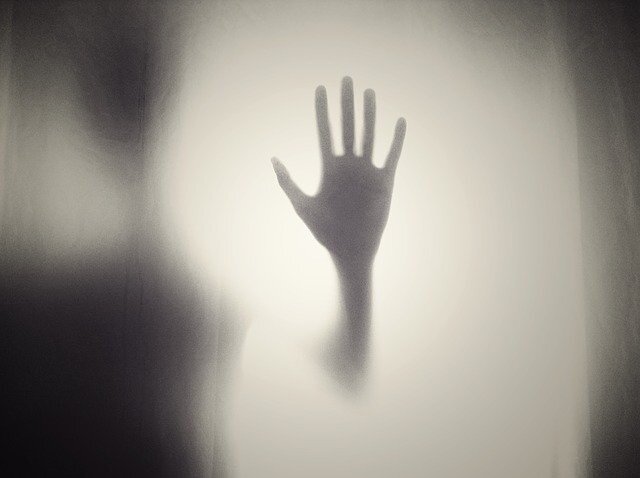How To Accept The Shadow Within Us
When you train to be a counsellor, it not only means learning how to listen and empathise with people in their darkest moments, it also means confronting your own shadows head-on.
It makes sense that unless you have gone to the depths of your own psyche, you can’t call yourself qualified to deal with anyone else’s. But voluntarily going to these shadowy places that are full of personal pain sometimes seems like an exercise in self-harm. Bringing up upsetting memories and feelings for the purpose of inspecting them can feel counterintuitive because we humans have a natural instinct to protect ourselves and survive. Going into dark rooms that contain scary stuff goes against our reflexes that sensibly send us running away from fearful things.
Related article: The best way to stop your inner critic
I started off on this journey of self-discovery by studying pioneering psychoanalyst Carl Jung’s shadow theory as part of the psychodynamic approach. The theory explores the idea that our subconscious holds aspects of our personality that our conscious mind wants to turn away from due to feeling ashamed or uncomfortable or due to trauma. These aspects are pushed down into the subconscious, into the shadow where they can be hidden and ignored. Sometimes this is necessary for us to function in a near-normal manner – let’s face it, if we went around with traumatic memories swarming round our brains on a daily basis then we would find it hard to carry out the most basic of tasks without breaking down.
However, there are times when our shadows make a break for the surface and cannot be ignored. It can perhaps come as part of a stressful situation that triggers memories or reactions in us, or sometimes they can come in the form of panic attacks when there is a feeling of darkness swallowing the sufferer. Everyone is different so everyone acts in an individual manner – some feel overly emotional, some feel angry, some feel numb and withdrawn. Most people at some point in their life go through a rough patch that has them saying “Why am I acting like this?”
We often regard these difficult times as extremely bleak, but if we reframe them and realise what’s happening within ourselves is a way of highlighting what is really bothering us, then we can actually see them as a blessing. Having help to reflect on what these feelings are pointing to, and where the origins of these feelings come from can help us get to the root of our deep-seated problems. Sometimes our shadow comes up for a good reason. Our shadow waves its hands at us and says: “Oi! We’ve got a problem here and you can’t ignore it anymore. And unless you sort it out we’re going to keep on disrupting you until you finally figure it out.”
Related article: How the anchoring technique can help panic attacks
That’s the tricky thing about shadows - the deeper they are pushed or denied, the more force they will have when they eventually resurface. This is what happened to me at one point in my life. I started suffering from panic attacks that were eventually diagnosed as being PTSD from a traumatic time in my life 25 years earlier. I had held this trauma deep in the shadows of my subconscious because it was too painful to deal with. In a way, I am grateful that my psyche had sensibly waited for a quarter of a century before I had become more resilient and stable to deal with such difficult memories and feelings. Everything has its time and sometimes you have to wait a while before you’re ready to deal with the heavy stuff.
This is when you need the safe hands of an expert – for example a therapist registered with the British Association for Counselling and Psychotherapy. With them, we can safely travel to these dark places and begin to shine a light on them so they don’t seem quite so scary anymore.
I used to feel that all these shadows inside me were repugnant, that I wanted to get rid of them and instead become a shining being with only good thoughts and wise reactions. But delving into my past and bringing up these shadows for inspection meant that I suddenly realised what a ridiculous and unrealistic goal this is. It’s on a par with expecting myself to never to eat chocolate again.
So much of our psyche is wrapped up in feeling guilty about ourselves and our behaviour. Various religions tell us we must battle with the “evil” inside ourselves and even parents tell us to “be good” and punish us when we are “bad”. But battling your shadow is like punching smoke – you never land a punch and you only succeed in spreading a toxic mess all over the place. So when you finally give up on trying to fight those dark aspects of your personality, something wonderful happens - they begin to lose their aggression and their hold on you. As therapists say, you begin to integrate them into your life. You recognise and accept your shadows and instead of running away from them, you acknowledge them like old grumpy friends. As a result, you become kinder to yourself. You forgive yourself.
Now I see that my shadow is a necessary part of me. Instead of turning away from it and pretending it isn’t there, I can see that actually some of those dark spots act like a very effective warning system. When I react in a negative way to a situation or a person, I can be self-aware enough to know what this feeling reminds me of and I can normally trace it back to a shadowy place in my past. Sometimes my shadow has acted like an instinct to protect me from people who displayed the same sort of behaviour as unpleasant people in my past. (Although you have to be careful on that one, as it could lead to rejecting people who are perfectly fine but who unfortunately possess similar characteristics that set off alarm bells for you.)
Shadow work is tough going and can leave you emotionally exhausted which is why it’s important to have qualified help on your side. But I have a little experiment in shadow work that can be done in a safe manner.
Their Shadow or Yours?
Shadow theory can also be used to explain why we have difficulties with certain people in our lives. This may be because these people reflect something in our own shadow that we are embarrassed about, or there is something in them that our shadow is jealous of.
Just have a think about someone you really don’t like in your life, past or present. Write down all the character traits they have in list form and what bothers you about them. Go into every bit of detail you can. If they had some good qualities about them, write them down too.
Now be honest with yourself and try to see if there are any traits that you and your difficult person both possess. Do you have a problem with that person because they actually reflect part of you that you are ashamed of and don’t like to admit? Do they also possess characteristics that you are jealous of? Is there part of you that wishes you could be like them, but you can’t bear to give them credit and admit it?
These are all indications of your shadow at work. Doing this type of exercise is a safe way of dipping your toe in the water and it could perhaps help you to understand a difficult person in your life. However, if you feel that you need some expert help, finding yourself a BACP registered counsellor or therapist is a recommended path. I’m one of those people, so if you’d like to work with me, take a look at my counselling page to find out how I could help you meet and make friends with your shadow. Or if you’d like to discover a wealth of free mental health rescources, just click the button below to find online self-help for anxiety and depression.
GET THE FREE MENTAL FIXITS KINDLE EBOOK...
Download the whole LightHearts UK mental health course for free with Kindle Unlimited. Includes personal stories from the LightHearts founders on how to deal with low self-esteem, eating disorders, depression, anxious thoughts and panic attacks.
Click HERE to go to Amazon and find out how you can download your copy now.


